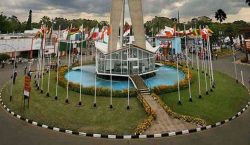

THE International Trade Centre (ITC) has urged women entrepreneurs in Southern Africa to expand their business opportunities through the African Continental Free Trade Area (AfCFTA).
This was said at the Harare Forum on 16 March, organized in collaboration with the Organisation of Women in International Trade (OWIT) in Zimbabwe, the high-level trade forum is part of ITC’s One Trade Africa programme – AfCFTA Dialogue Forums.

Looking at “Trade Beyond Covid-19: Demystifying the AfCFTA for Zimbabwe/Southern Africa Women-led MSMEs”, the event’s discussions promoted ownership of the agreement among the region’s participants as well as engaged women and youth-owned small firms in seeking out the potential business gains the AfCFTA can offer.
Given the current Covid-19 situation, ITC highlighted the rise of existing gender inequalities, affecting women’s access to resources and equitable economic opportunities.
“It is a well-known fact that women’s empowerment creates ripple effects that boost growth and make countries more competitive internationally and also improve other complementary factors, such as health and education.
Despite these evident gains, women entrepreneurs and women-led business face greater challenges, such as limited financial literacy, access to finance and business networks, and even constraints due to social norms,” Dorothy Tembo ITC Deputy Executive Director said.
The Zimbabwe deputy minister of Affairs and International Trade David Musabayana underscored the government’s recognition to prioritise women’s economic empowerment in achieving the country’s economic growth.
“For women traders and entrepreneurs, including micro-entrepreneurs to benefit from expanded trade under the AfCFTA, government will scale up existing trade-related technical assistance for women and youth-owned SMEs to help them improve their capacity to trade”, said Mr Musabayana.
Allan Majuru, ZimTrade’s chief executive, Zimbabwe’s trade development and promotion agency, believes the agreement opens tremendous possibilities for the whole continent.
“There are vast opportunities in African markets. We have no doubt that with the right support Zimbabwean companies will perform well across all markets in the continent. Our engagement with ITC and other stakeholders will discuss intra-Africa trade opportunities as well as find solutions to challenges faced by Zimbabwean companies,”Majuru said.
 Ending the discussions, private-sector representatives called on policymakers in the region to accelerate digital transformation programmes, such as e-commerce, as they seek to align both national and regional trade strategies.
Ending the discussions, private-sector representatives called on policymakers in the region to accelerate digital transformation programmes, such as e-commerce, as they seek to align both national and regional trade strategies.
Other stakeholders included the Common Market for Eastern and Southern Africa (COMESA) Business Council, the Senior Advisor to the AfCFTA Secretary-General, the head of delegation for the European Union to Zimbabwe, the Minister of Women Affairs and the Deputy Minister of Foreign Affairs and International Trade in Zimbabwe.
The resulting Harare Declaration asks all stakeholders to align with global best practices, common trends and opportunities for a successful AfCFTA.
The Forum also included mini-workshops on key trade topics such as exporting within the AfCFTA and increasing intra-Africa transactions through e-commerce. Southern Africa and Zimbabwean exporters, especially women and young small businesses owners, were encouraged to tap into the opportunities available in other African markets as well as improve their competitive edge.